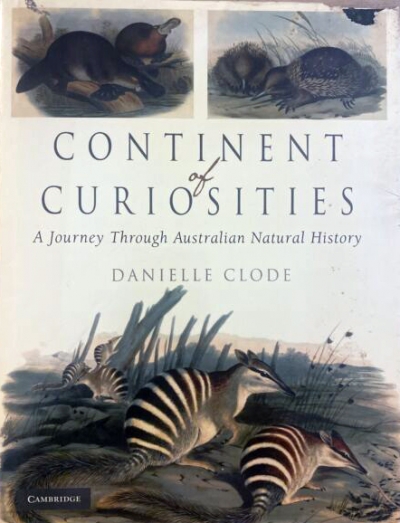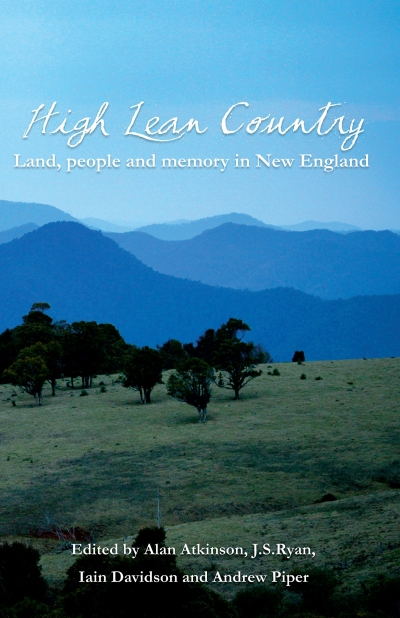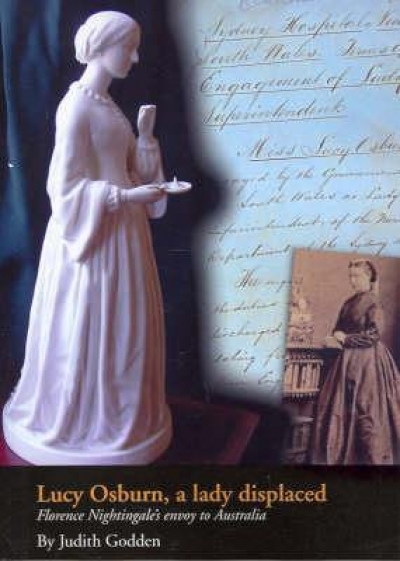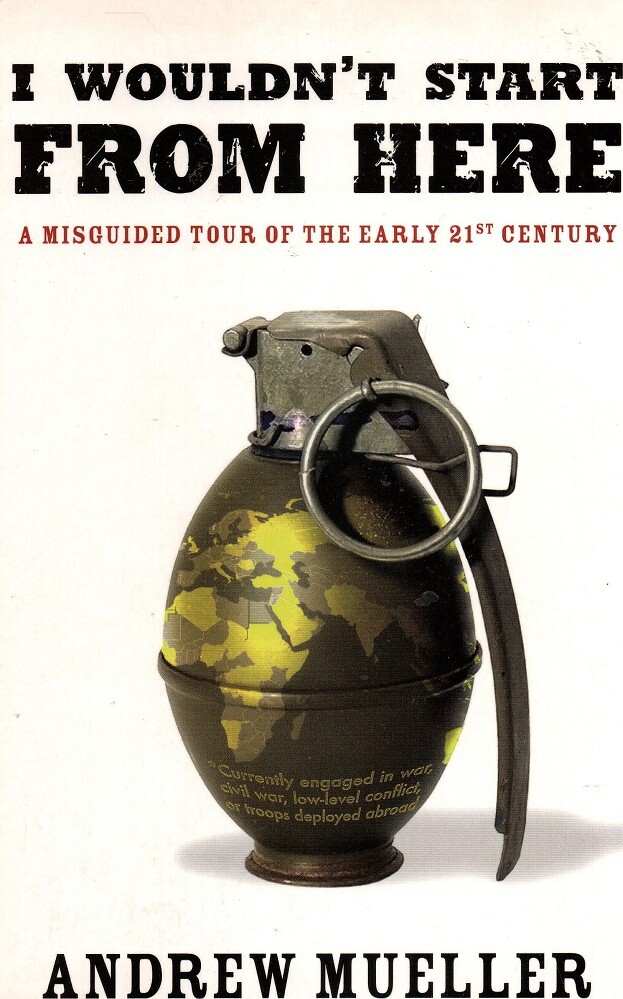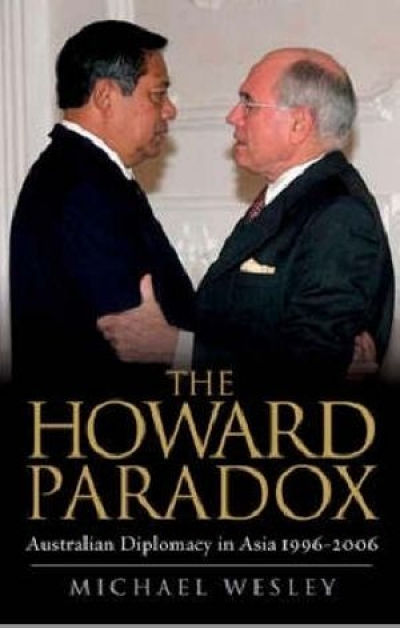History
Continent of Curiosities: A journey through Australian natural history by Danielle Clode
In the late twentieth century, museums throughout the world faced a number of challenges. Confronted with a plethora of flashy new technologies, they struggled to overcome a perception of irrelevance and fustiness. Bureaucrats demanded that museums pay their way, entertain the masses, and meet the growing expectations for instant gratification and information without effort.
... (read more)Universal dictionaries are no longer possible or desirable. If we would conquer the realm of knowledge we must be content to divide it.’ Thus wrote The Times on 5 January 1885 in its first article on the Dictionary of National Biography (DNB), whose initial supplement – the first of an eventual sixty-three published over the next fifteen years – was then about to appear.
... (read more)High Lean Country: Land, people and memory in New England by Alan Atkinson et al.
I recently went back to New England. It is a long drive from Melbourne, but as I passed through Coonabarabran and Tamworth and began the ascent up the Moonbi Ranges, my gaze responded to the strange and familiar landscape. I periodically wound down the car window to smell the air – crisp but still warm for autumn. I grew up in a few different New England towns – Inverell, Glen Innes, Armidale – so I am familiar with the territory covered in the fascinating essays in High Lean Country. The high elevation of the Tableland makes the winters cold, summers mild. The dramatic landscape is dotted with granite mounds and monoliths. It is edged to the east by the escarpment and the gorge country of Judith Wright’s poems.
... (read more)Lucy Osburn, A Lady Displaced: Florence Nightingale's envoy to Australia by Judith Godden
The cover of Judith Godden’s biography of Lucy Osburn, the founder of modern nursing in Australia, is dominated by a ghostly white statuette of Florence Nightingale. Lucy herself appears in a bottom corner, photographed with a book in hand, an insignificant figure dressed in black silk, with a white cap over a severe hairstyle. At times, it seems as if Nightingale is going to overshadow the book, too. But despite her largely unsuccessful attempts to carry out the wishes of the ‘lady with the lamp’ in New South Wales, Osburn did succeed in creating conditions whereby scientific practices could be introduced into nursing in Australia, though she failed to convince the medical establishment that women could be trusted with medical knowledge or were capable of managing hospitals.
... (read more)I Wouldn't Start From Here: A Misguided tour of the early 21st century by Andrew Mueller
Before you settle into this ‘random history of the twenty-first century’, grab an atlas: Andrew Mueller is one well-travelled hack. A fatalist philatelist, he has spent most of his career collecting the types of stamps that adorn passports, not envelopes. In I Wouldn’t Start from Here, Mueller reports on and from some of the most exotic sites of international strife imaginable: Jerusalem, Baghdad, Gaza, Kabul. There are also trips to places of lesser renown, aspirational statelets and breakaway provinces in countries as far-flung as Georgia (Abkhazia). All of which, as his publishers congratulate him in their press release, is ‘[n]ot bad for a guy who originally hails from Wagga Wagga’.
... (read more)Alien Roots: A German Jewish girlhood: from belonging to exile by Anne Jacobs
Alien Roots is a remarkable memoir of pre-war Germany, written in Melbourne by Anne Jacobs (born Annemarie Meyer). Jacobs wrote it in the 1960s, at a time when the Holocaust was rarely mentioned in Australia. Charles Jacobs collated his wife’s memoir for the family, and her children arranged for its publication in late 2006, twenty-four years after her death. The Melbourne-based Makor Jewish Community Library is the publisher.
... (read more)The Howard Paradox: Australian diplomacy in Asia 1996–2006 by Michael Wesley
Canberra’s week of the two presidents – October 2003 – brought the unprecedented spectacle of George W. Bush and China’s President Hu Jintau speaking just a day apart to joint sittings of the Australian parliament. The coincidence elegantly dramatised the central questions for Australian foreign policy: how we manage our relationships with our superpower ally, how we live with our neighbours in Asia, and how we get the balance right between them. This has been the essential challenge for every Australian government since World War II. In his important new book, The Howard Paradox, Michael Wesley focuses on one side of that balance – relations with Asia – and on the Howard government.
... (read more)Regardless of debates over Australian cultural identity, the flag and a potential republic, the ‘Green and Gold’ colours of our national sporting teams are recognised worldwide. The Golden Wattle (Acacia pycnantha), from which these colours are derived, was first proposed as a national flower in the 1880s during the prelude to Federation. However, it was not until the 1988 Bicentenary Celebrations that it was formally declared as Australia’s floral emblem. Why was the wattle chosen for this honour over its main competitor, the spectacular red waratah? And what was the significance of using wattle as a symbol of national unity and mourning in the wake of the 2002 Bali bombings?
... (read more)Strangers in the South Seas: The idea of the Pacific in western thought edited by Richard Lansdown
At the close of the twentieth century, in the tradition of countless Westerners before him, British travel writer Julian Evans travelled around the Pacific. At the Kwajalein atoll in the independent republic of the Marshall Islands, he found the resident US missile testing base to be efficient, clean and ‘tidy, quiet, ordinary: suburban trailer-park America at its best’. No Marshallese lived at Kwajalein, but 10,000 of them huddled on the small neighbouring island of Ebeye, whence they commuted to provide labour for the base. At Ebeye, nothing was ‘real nice’, as Evans described:
... (read more)At the centre of this book is the story of the attack on the World Trade Center towers in New York on 9/11. Terry Smith’s focus is architectural: what does it mean for buildings that are supposed to shelter and sustain our lives so spectacularly to collapse? The WTC’s destruction raises this question so singularly, not only for those who immediately suffered – traumatised by the obliteration of family members or their own escape from death – but for contemporary Everyman and Everywoman, who encountered the WTC not first-hand but as an image, what Smith calls an ‘iconotype’ in an ‘iconomy’ of architectural images.
... (read more)

